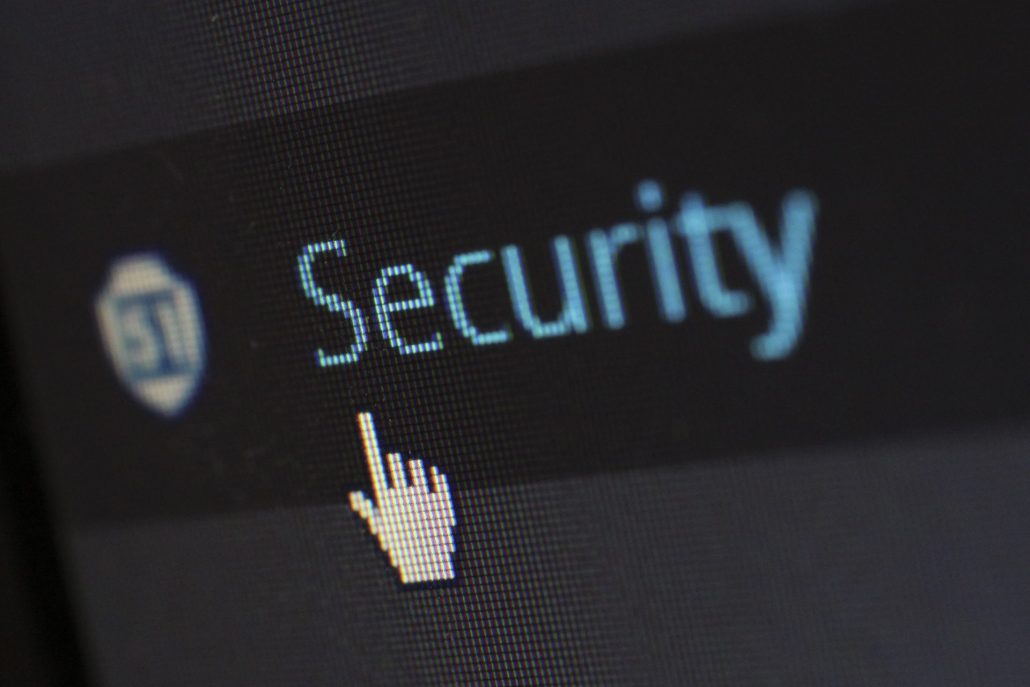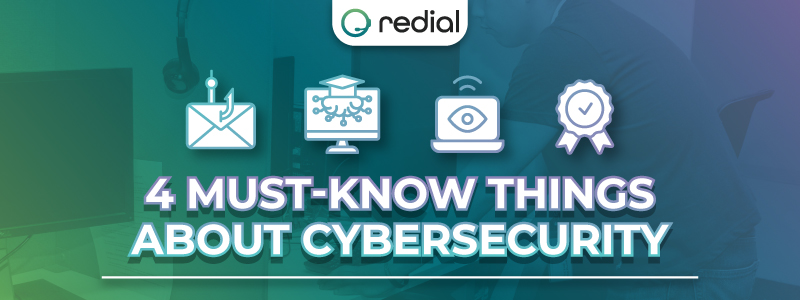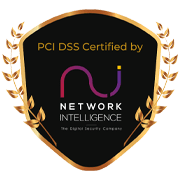4 Must-Know Things About Cybersecurity
Cybersecurity has to be a major concern for businesses of all sizes. The constant evolution of cyber threats demands that organizations remain vigilant in safeguarding their sensitive data and protecting their clients.
This blog post will delve into four essential aspects of cybersecurity: the basic concepts, best practices, and the significance of complying with certifications like PCI, ISO-9001, and HIPAA for our clients.
Understanding Cybersecurity Basics:
Cybersecurity refers to the measures and practices employed to protect computer systems, networks, and data from possible unauthorized access, theft, or damage.
It encompasses a range of technologies, processes, and policies designed to mitigate risks and ensure information confidentiality, integrity, and availability.
Key concepts to grasp include:
Threats and Attack Vectors: Familiarize yourself with common cyber threats such as malware, phishing, social engineering, and ransomware.
Understand the different attack vectors they exploit, such as email, malicious websites, or software vulnerabilities.
Defense Mechanisms: Explore fundamental security measures like firewalls, antivirus software, encryption, strong passwords, multi-factor authentication, and regular system updates.
It is necessary to comprehend their roles in fortifying your digital infrastructure.
Best Practices for Cybersecurity:
To strengthen your organization’s cybersecurity posture, it is crucial to implement robust best practices. These guidelines help minimize vulnerabilities and reduce the risk of successful cyber-attacks.
You can consider the following:
Employee Education and Awareness: Train your staff to recognize and respond to potential threats, emphasizing the importance of strong passwords, safe browsing habits, email vigilance, and secure remote working practices.
Regularly update and reinforce this training to stay ahead of emerging threats.
At Redial, we are currently working on an internal cybersecurity campaign, with both our communication, IT and cybersecurity departments.
Letting our Redialers (team members) for both operative and administrative personnel the best practices and important information on what to do.
Regular Data Backups: Develop a robust backup strategy to protect against data loss caused by ransomware or other malicious activities.
Regularly test your backup system to ensure its effectiveness in restoring critical data.
Incident Response Plan: Establish a comprehensive incident response plan that outlines how your organization will detect, respond to, and recover from a cybersecurity incident.
This plan should include roles, responsibilities, and communication protocols to minimize the impact of a possible attack.
Compliance Certificates:
PCI, ISO-9001, and HIPAA: Obtaining relevant compliance certificates demonstrates your commitment to cybersecurity and assures your clients.
Here’s an overview of three significant certificates that we proudly follow:
PCI (Payment Card Industry Data Security Standard): If your business handles credit card transactions, complying with the PCI DSS is vital.
This standard ensures the secure handling of cardholder data, protecting both your customers and your organization from financial fraud.
SOC 2 (System and Organization Controls): Provide user organizations with assurance over the critical systems and sensitive data used to provide the outsourced services. Typically, the objective is to meet vendor risk management requirements that customers may request surrounding security.
ISO-9001 (International Organization for Standardization): ISO-9001 certification is a globally recognized quality management system standard.
While not directly focused on cybersecurity, it emphasizes a systematic approach to risk management, including information security, within the broader context of organizational processes.
HIPAA (Health Insurance Portability and Accountability Act): HIPAA compliance is essential for organizations in the healthcare industry.
It safeguards the privacy and security of a patient’s medical information, ensuring that it is appropriately protected and only accessed by authorized individuals.

The Importance of Client Protection:
Complying with certificates like PCI, ISO-9001, and HIPAA goes beyond meeting regulatory requirements.
It demonstrates your dedication to client protection and fosters trust among your customers.
If you prioritize cybersecurity, you can safeguard sensitive customer data, maintain the integrity of your business operations, and mitigate the risk of reputational damage caused by data breaches or compliance violations.
Final Thoughts:
Cybersecurity is critical to any business’s operations in the digital age.
Understanding the fundamental concepts, implementing best practices, and obtaining relevant compliance certificates are essential to protecting your organization and clients.
No matter the industry or line of business, you can ensure safety and client confidence.
Thanks for joining us on this blog, if you want to learn more, click here.
We provide the best contact solutions for any company; want to talk to the team?

Hey! I’m Emmanuel Ángeles, Marketing Manager at Redial BPO. I focus on building strategies and creating content that connects brands with their customers. With over 10 years of experience in digital marketing and communications, I’ve learned that what I enjoy most is telling stories that show how the right strategy (and the right team) can truly transform a business.



